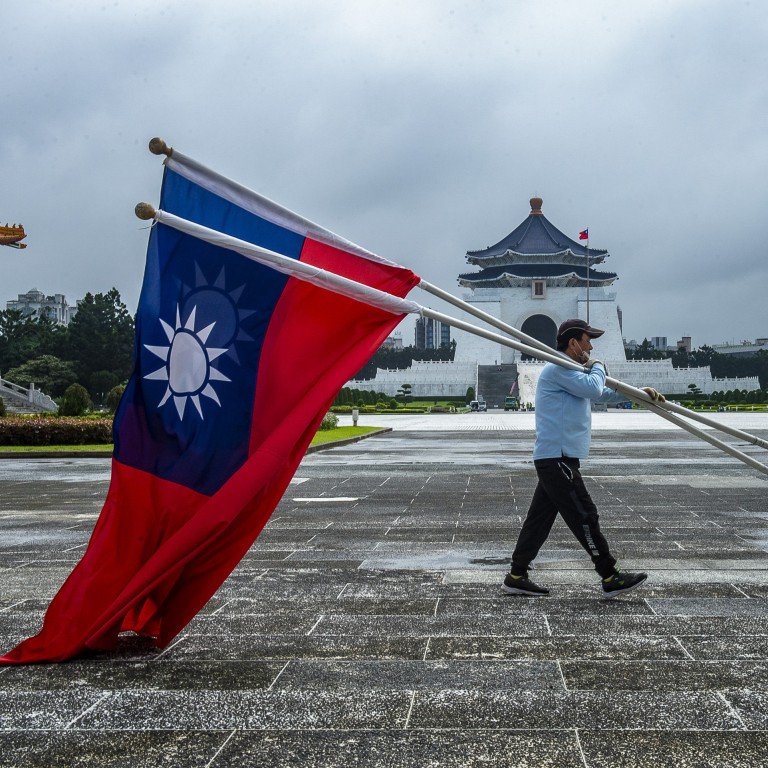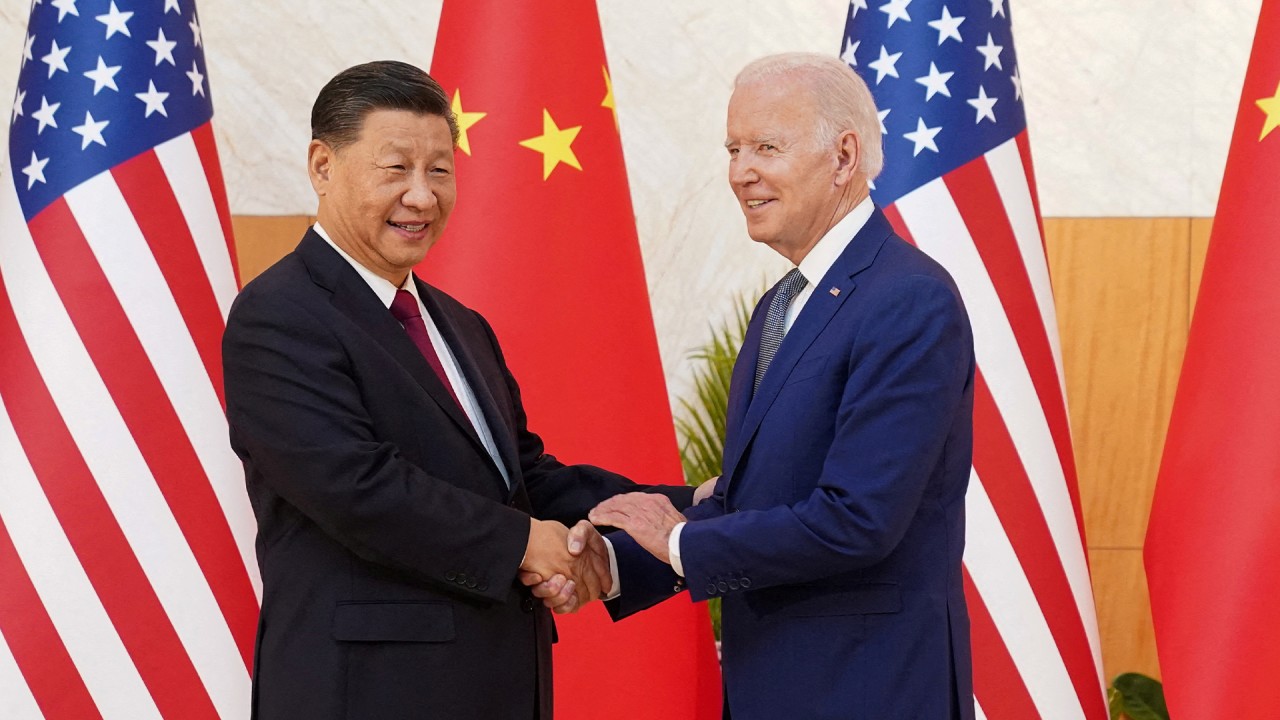
Xi-Biden talks: Taiwan is still the big red line in China-US relations
- Both leaders used their discussions to stake out their positions on the self-ruled island
- The tensions remain and there are potential flashpoints ahead, analysts say
The two leaders met for more than three hours of talks on the sidelines of the G20 in Bali on Monday, with Xi Jinping telling Joe Biden that Taiwan was “the first red line” that could not be crossed in the China-US relationship
Xi said the self-ruled island was “the core of China’s core interests, the foundation of political foundations in the China-US relationship”.
“China will definitely act in accordance with the law if the three serious situations stipulated in the Anti-Secession Law occur,” Wang said.
The 2005 law is Beijing’s legal framework to use non-peaceful means to counter pro-independence forces in Taiwan.
But the clauses relating to the three “serious situations” that would trigger the action are vague, giving Beijing room to manoeuvre on when to launch attacks against the island.
Senior US military officials have said attack on Taiwan could happen as soon as this year. But after his meeting with Xi, Biden said he did not believe an invasion of the island was “imminent”.
Beijing biding its time on Taiwan issue, say Chinese analysts
Zhu Songling, a Taiwan affairs specialist at Beijing Union University, said Xi had clarified the importance of Taiwan, indicating to Biden that “there is no space for compromise” and crossing the red line would bring “subversive” changes to Sino-US relations.
Zhu said Xi’s reference to the Anti-Secession Law was to assure the US that Beijing would resolve Taiwan issues by the law, “which is in line with international practice and a position that all countries can understand”.
“This will help dispel US concerns about China’s use of force and make everyone aware of the predictability of the Taiwan issue,” Zhu said.
Xi also asked Biden to fulfil his promise not to support “Taiwan independence”, after the US president said four times this year that he would defend the island against an attack from Beijing.
During the three-plus hours of talks, Biden assured Xi that the US’ one-China policy had not changed and the United States opposed any unilateral changes to the status quo by either side.
But he also raised US objections to Beijing’s “coercive and increasingly aggressive” actions toward Taiwan, which he said undermined peace and stability across the Taiwan Strait and in the broader region, and jeopardised global prosperity.
Zhu said the tensions in the Taiwan Strait could not be resolved easily and there would be more flashpoints following the US’ midterm elections.
Biden’s Democrats have retained control of the Senate while Republicans are expected to win a majority in the House of Representatives.
“It will possibly be a divided congress, and the race between Republicans and Democrats over Taiwan issues in the congress will intensify,” he said, adding the two parties have a consensus on supporting the island Taiwan.
Shi Yinhong, an international relations professor at Renmin University, said Xi sent a clear, stronger warning to the US on Taiwan, and both sides reaffirmed their positions.
But there had been an easing in tensions since August.
“After high tension due to Pelosi’s visit, China and the United States appear to be placing greater emphasis on preventing Sino-US military conflicts,” Shi said.
However, military dialogue between the two sides remained on hold.


